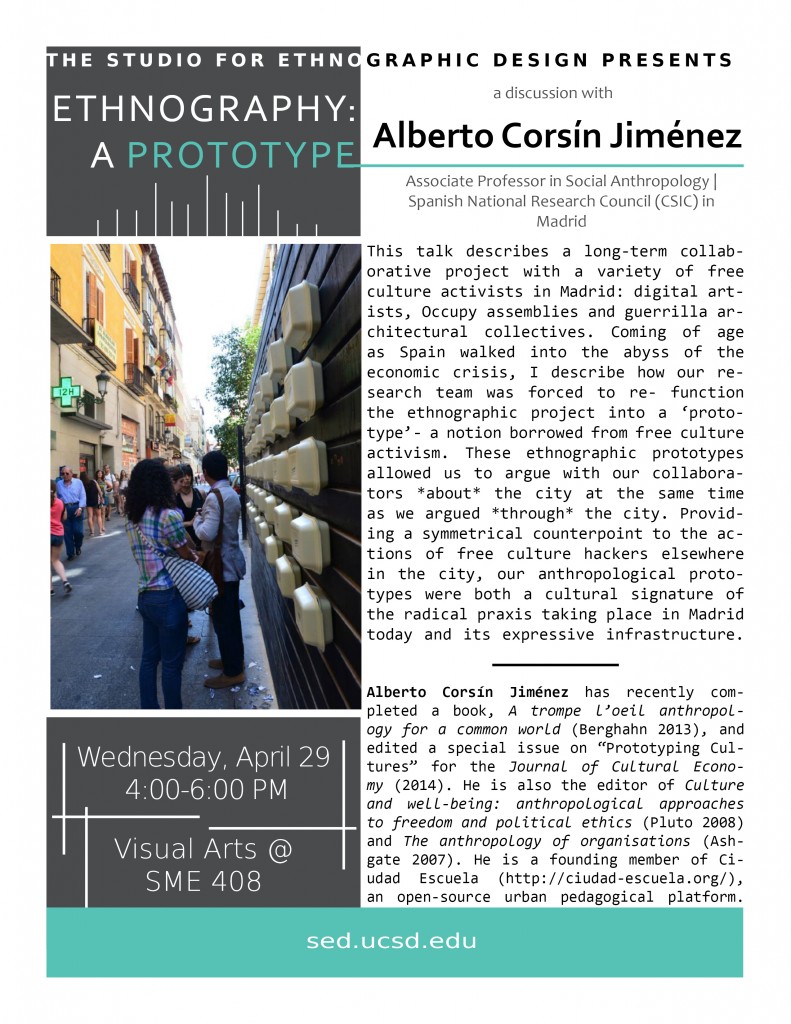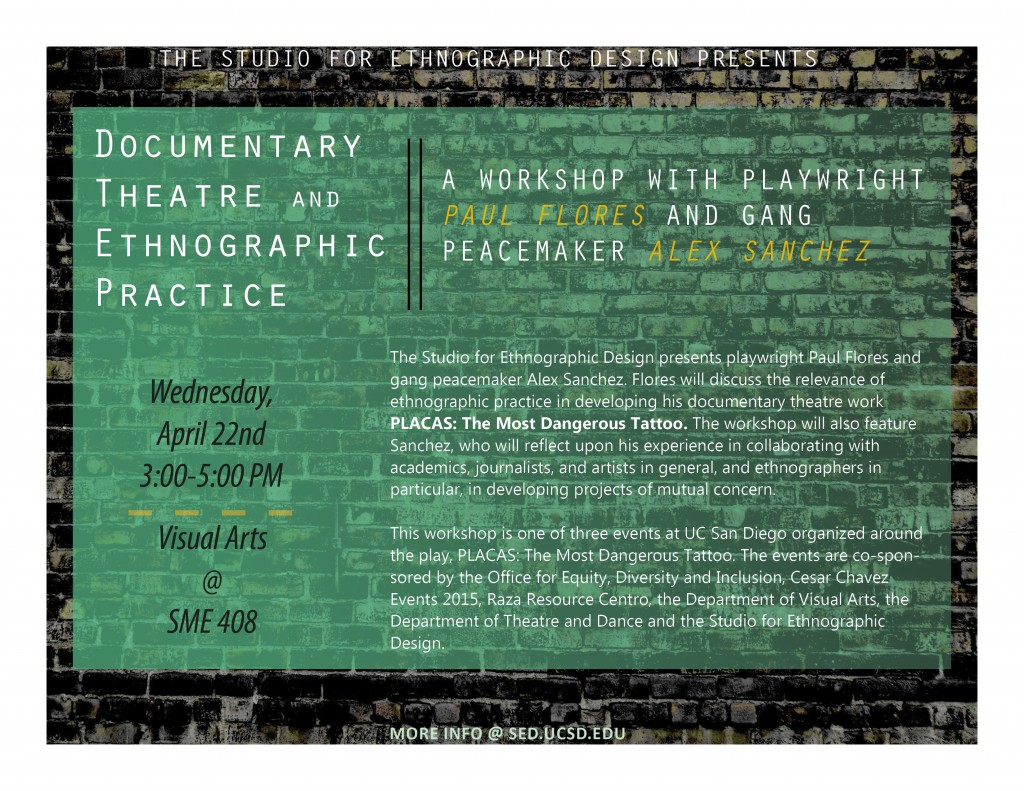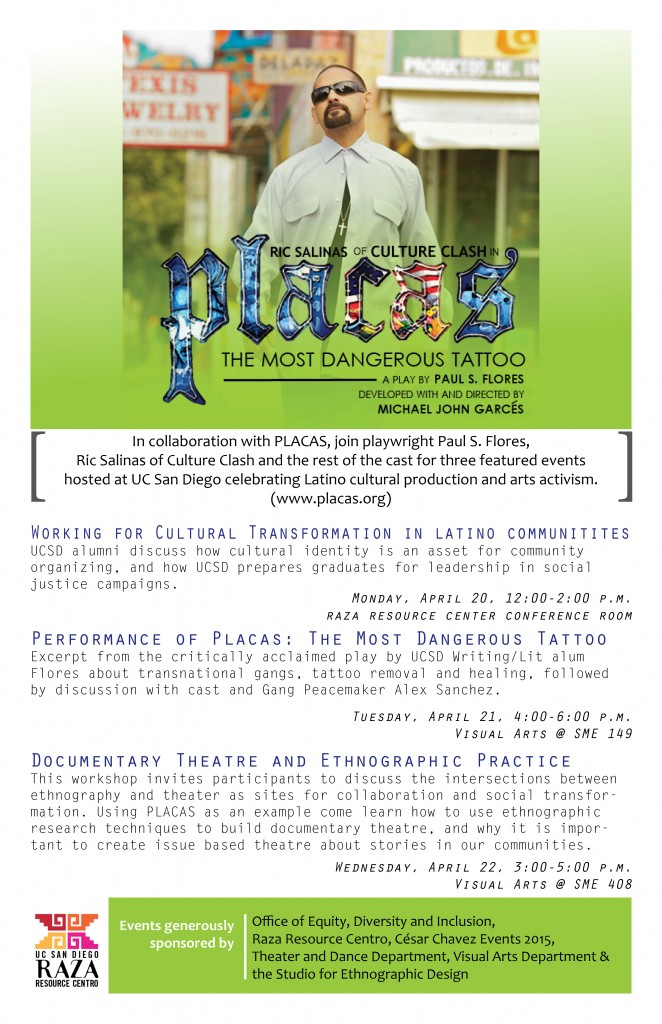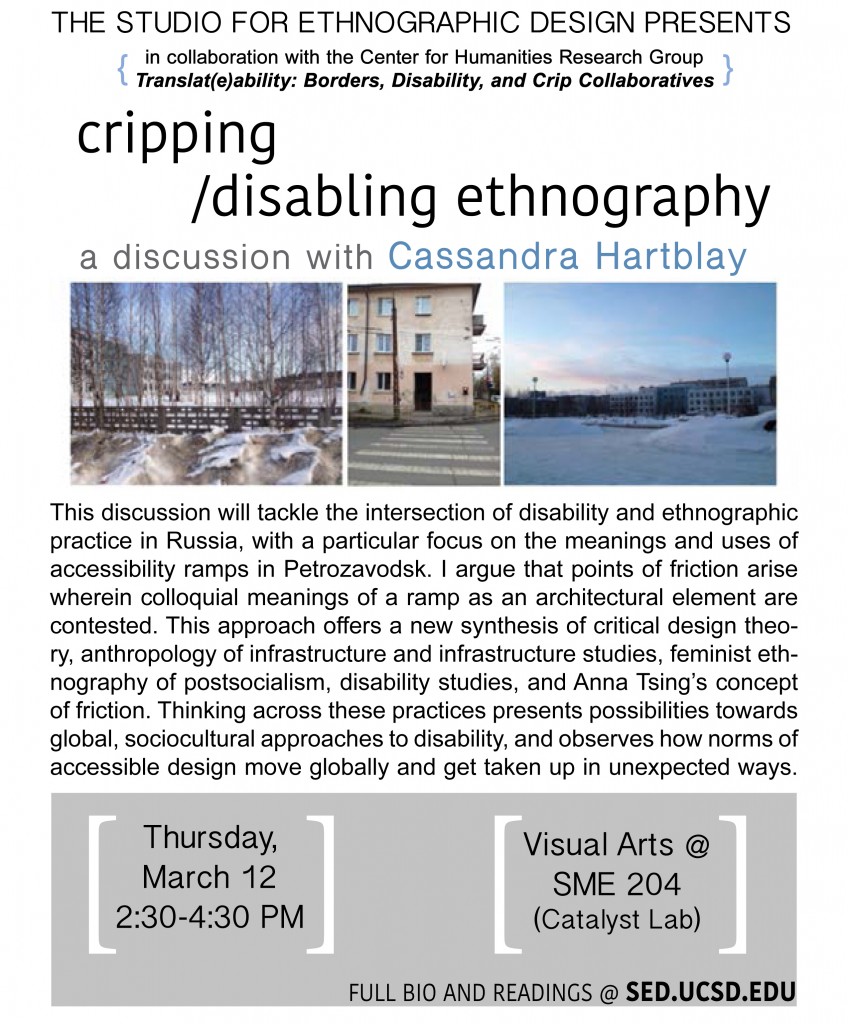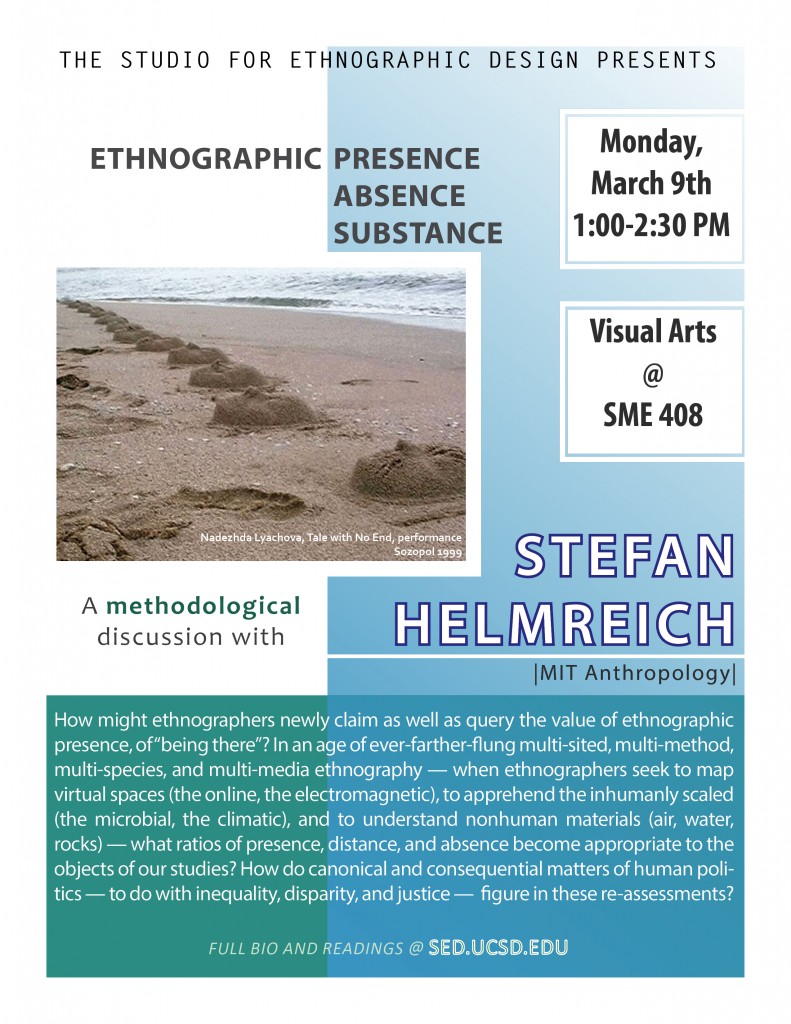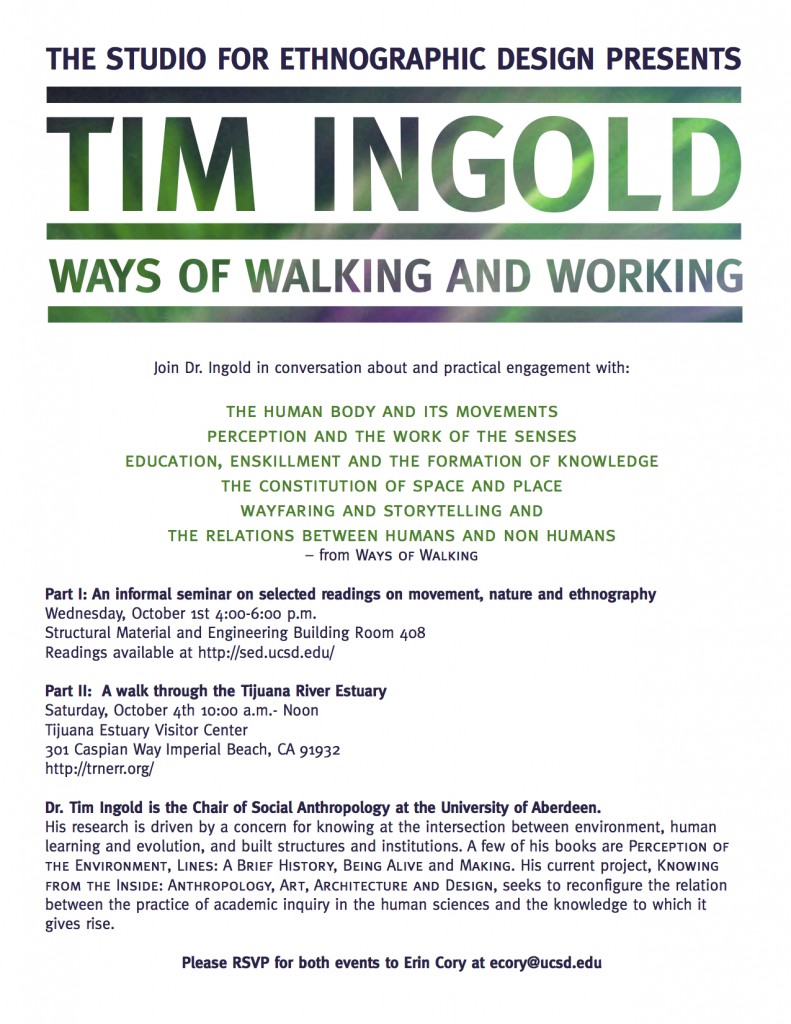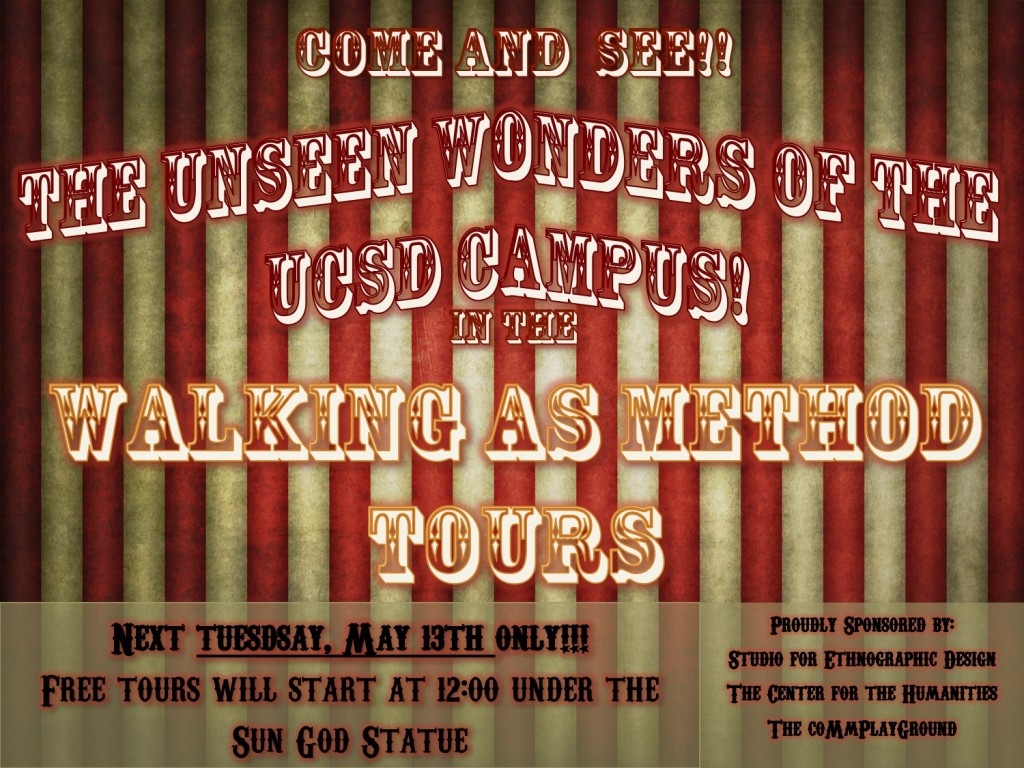WEDNESDAY, April 29th
4:00 – 6:00 PM
VISUAL ARTS @ SME (STRUCTURAL & MATERIALS ENGINEERING), ROOM 408
Join SED for a talk by Alberto Corsín Jiménez, Associate Professor in Social Anthropology at the Spanish National Research Council (CSIC) in Madrid. Professor Jiménez will discuss the politics of prototyping at the intersection of ethnographic design and free culture activism. This talk describes a long-term collaborative project with a variety of free culture activists in Madrid: digital artists, Occupy assemblies and guerrilla architectural collectives. Coming of age as Spain walked into the abyss of the economic crisis, Jiménez describes how the research team was forced to re- function the ethnographic project into a ‘prototype’- a notion borrowed from free culture activism. These ethnographic prototypes allowed the team to argue with collaborators *about* the city at the same time as we argued *through* the city. Providing a symmetrical counterpoint to the actions of free culture hackers elsewhere in the city, these anthropological prototypes were both a cultural signature of the radical praxis taking place in Madrid today and its expressive infrastructure.
Alberto Corsín Jiménez has recently completed a book, A trompe l’oeil anthropology for a common world (Berghahn 2013), and edited a special issue on “Prototyping Cultures” for the Journal of Cultural Economy (2014). He is also the editor of Culture and well-being: anthropological approaches to freedom and political ethics (Pluto 2008) and The anthropology of organisations (Ashgate 2007). He is a founding member of Ciudad Escuela (http://ciudad-escuela.org/), an open-source urban pedagogical platform.g.
Suggested Reading:
TBA

